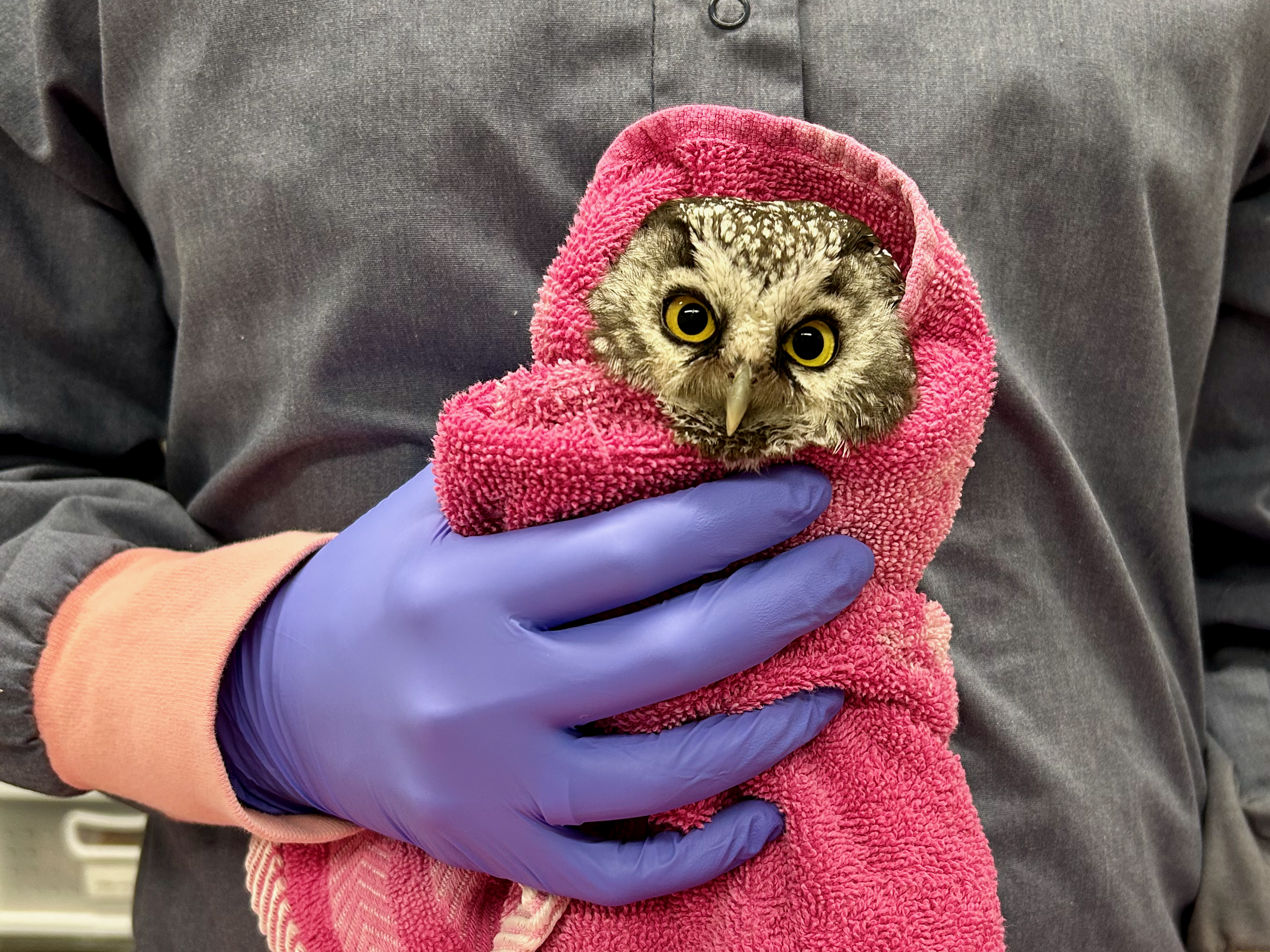Do not attempt to rehabilitate birds on your own.
State and federal laws protect wild birds, and they must be placed under the care of licensed rehabilitators as soon as possible.
Bird Treatment and Learning Center is permitted by the U.S. Fish and Wildlife Service and the Alaska Department of Fish and Game to rehabilitate species protected by the Migratory Bird Treaty Act (scroll down for information on starlings and pigeons which are non-protected species).
INJURED BIRDS
What to do if you find an injured bird
If you have found an injured eagle, owl, or other large raptor, please call the Bird TLC clinic for assistance.
If you have found a bird that appears to be sick or is dead and the cause is not apparent, do not handle the bird as it may have Avian Influenza. Report the bird’s location to the Alaska Sick or Dead Bird Hotline at 1-866-527-3358.
For other species:
Determine if the bird is in need of help. Is the bird limping, bleeding or dragging a wing? If not, it may not be injured or in need of help - if in doubt call the Bird TLC at 907-562-4852 clinic for assistance.
Use caution, injured wild animals do not understand that we are trying to help them, and they will defend themselves from their perceived predator.
Capture the bird carefully using a towel, blanket, or box.
Place the bird in a secure box with air-holes and in a dark, quiet place away from human and pet traffic.
Bring the bird to the Bird TLC rehabilitation clinic for treatment and care during our open hours, M-F, 9:00 am - 5:00 pm. We are located at 15510 Old Seward Hwy.
AFTER-HOURS & WEEKENDS:
Please call 907-562-4852 and leave a message. Voicemail is checked until 8:00 pm.
If you are calling about an injured or orphaned bird, we will return your call to provide more instructions for overnight care and make arrangements for you to drop the bird off at the clinic during our open hours. Thank you!
Your gift will help injured and orphaned wild birds get a second chance at life in the wild.
Starlings and pigeons are not protected under the Migratory Bird Treaty Act and are considered invasive species by the Alaska Department of Fish and Game; therefore, we can not rehabilitate them. If the bird is injured, we can accept them and provide humane euthanasia to end their suffering.

